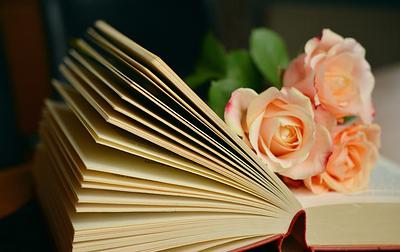Looking for all Articles by Eloise Birtwhistle?
Five tips for writing poems for celebrations
As we celebrate 15 years of the New Writers Awards, poet and previous Awardee Eloise Birtwhistle shares her top tips for writing poetry for celebrations and special events.

So often, people want to mark celebrations with poetry. It seems to fill a need that cannot be met in any other way. Perhaps poems are turned to because of a sense that they can honour, or that they can connect, or that they can harness large emotions. The right poem can also introduce a powerful moment of collective reflection. With so much being asked of poetry, penning some for a celebration is not an easy task! Here are five tips that might help you along the way.
1. Read other poems written for celebrations!
A great place to start is by reading existing poems written for celebrations. As you read, try to decide what techniques you like and don’t like. If you are moved by a poem, or if you find yourself being turned off by the way something is written, ask yourself why. Thinking deeply about what other writers are doing helps us to be more conscious about our own writing.
If you’re struggling to find poems about celebrations, you can find excellent examples by searching key words and themes on online databases such as The Scottish Poetry Library(this link will open in a new window), The Poetry Foundation(this link will open in a new window), The Poetry Society(this link will open in a new window) and The Poetry Archive(this link will open in a new window).
2. Remember that a celebration is more than just one moment
A party is a moment in time, but it usually celebrates a much longer period. Spend some time considering what has led up to this point. Ask yourself whether there were key events that brought everyone here, or what has been special about the journey. Even if your final poem doesn’t include these events, starting with them can help you to focus on what is being celebrated and why.
Celebrations also often look into the future. Particularly when they mark a moment of change, such as a birth, a wedding, a new year or a retirement. Capturing the sense of possibility and hope can be a great way to foreground joy.
3. Try to avoid cliché
I often hear people say that writing a happy poem is harder than writing a sad one, and perhaps one problem when writing about happiness is a desire to avoid sentimentality and cliché. This can be particularly difficult when writing for celebrations, which are often dedicated to widely recognised cultural moments.
Try to look at what is being celebrated through an image or perspective that surprises people. One way you can do this is to be unafraid of specifics – what qualities do the people or things that are being celebrated have that make them distinctive? What details can you explore that illustrate these qualities? Try to focus on one or two things here and trust them to do the work. Oddly, a vivid detail can speak more clearly to people at large than something generalised.
Another way to surprise people is to find interesting metaphors. Consider a poem that is a popular choice at weddings: ‘Scaffolding’ by Seamus Heaney. The imagery in this poem is rough wooden planks, nuts and bolts. Yet, the emotional tone created is one filled with tenderness, care and devotion. Finding a symbol that is unsentimental can give us a licence to say the sentimental thing.
4. Consider how the poem might be received when read aloud
A poem written for a celebration is likely to be performed aloud, quite possibly without the written text available to people. Furthermore, the audiences at such events will usually be made up of a wide range of people who have different tastes and varying experience of poetry (not to mention, they may have had a few drinks!).
With these things in mind, it’s a good idea to avoid images and ideas that are very complex. Similarly, avoid using language that is particularly dense or that might trip your audience up. And, when you’re reading your poem, make sure you give them enough time to process what you’re saying.
5. Think carefully about how to finish
Especially for a poem that is likely to be received aurally, endings are so important. The final line is the flourish that people are most likely to remember and it has the power to set the tone of the whole piece.
How do you want to leave your audience – what would you like them to think and feel about the celebration? Once you’ve decided the answer to these questions, the hard part begins. Instead of telling people what to think and feel, end your poem with openness. Try to suggest these things, but allow your audience to draw their own conclusions and to get there by meeting you themselves, rather than by being pushed.